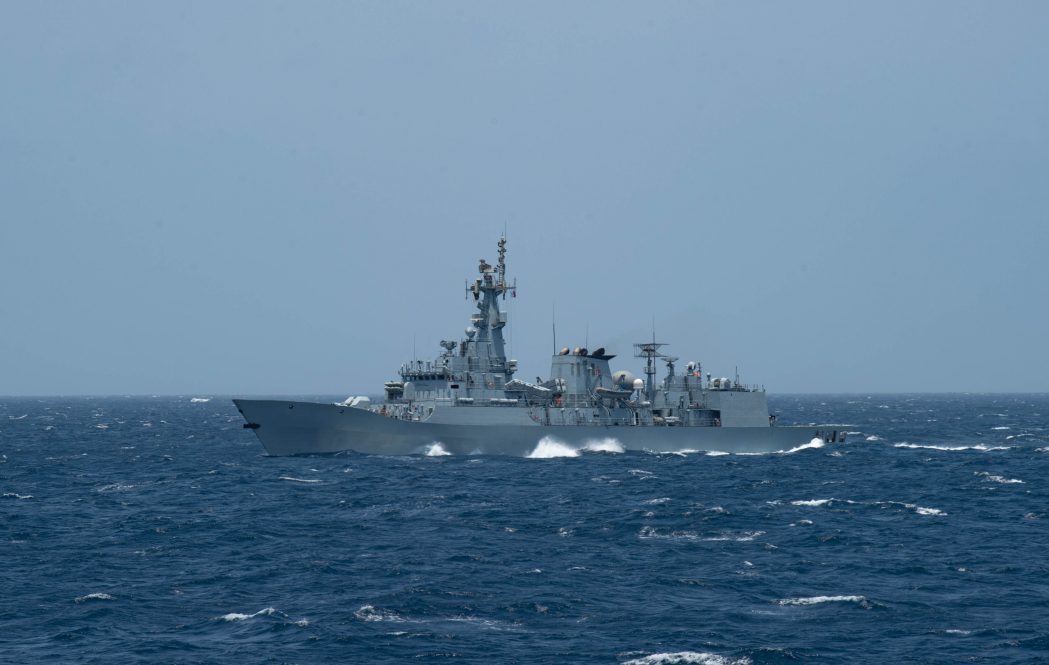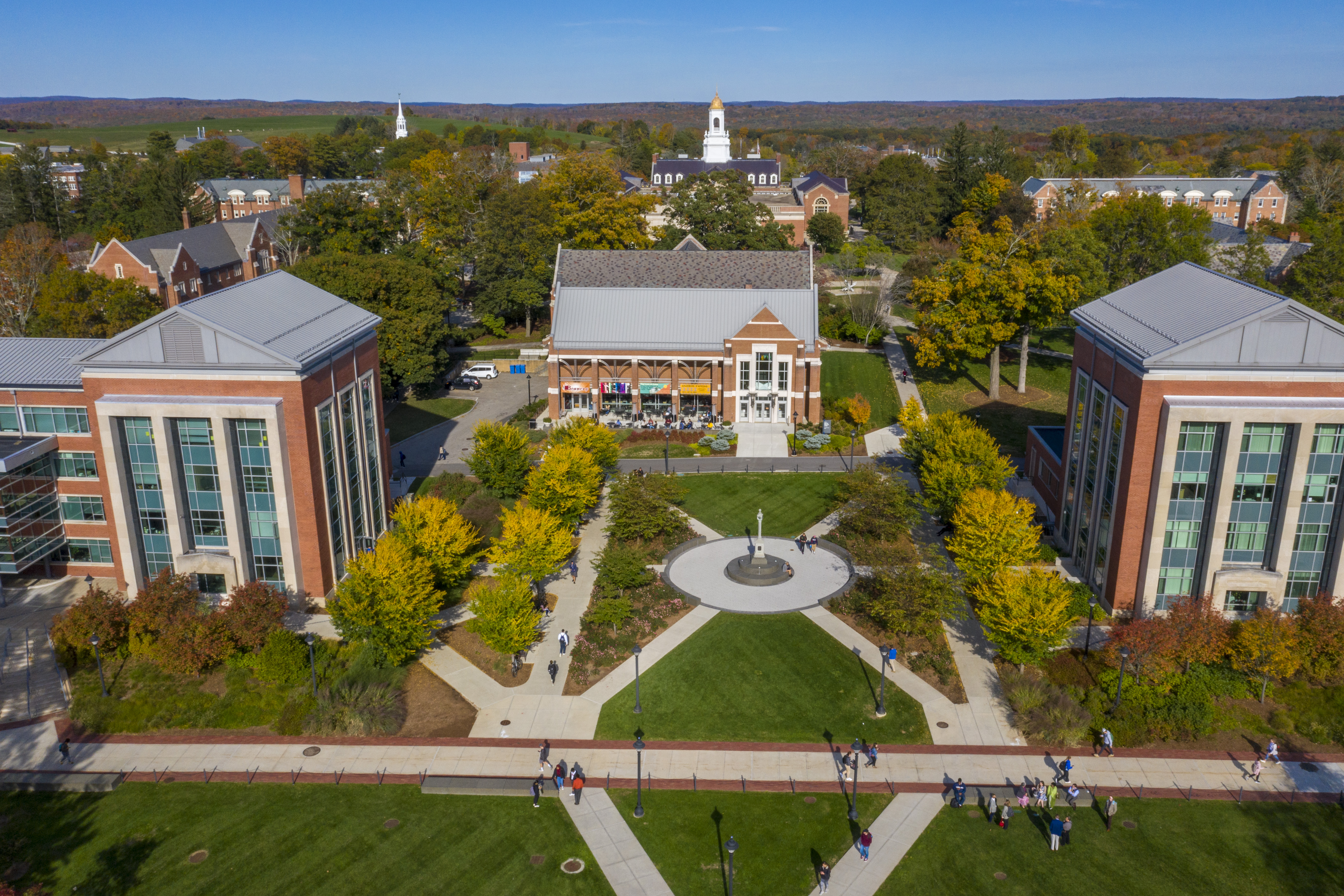Weather on the seas is dynamic and can be highly unpredictable, which has serious consequences when US maritime commanders are planning missions. Information about future weather conditions is crucial for developing intelligent courses of action. More than 75% of missions are severely disrupted by uncertain weather.
UConn Board of Trustees Distinguished Professor in the Department of Electrical and Computer Engineering Krishna Pattipati will collaborate with the Naval Research Laboratory – Marine Meteorology Division to develop algorithms for agile mission planning in the face of uncertainty.
This work is supported by a $1.5 million grant from the Department of Defense Office of Naval Research.
Pattipati will develop optimization and machine learning algorithms for agile planning. This work will provide naval commanders with a powerful tool to help them determine how to place assets where they are most needed and make decisions faster and with less risk.
UConn and the Naval Research Laboratory have previously demonstrated three novel, algorithmic tools: COAST, TMPLAR, and CONFIDENT. UConn researchers have applied optimization and machine learning algorithms to a variety of relevant concerns for anti-submarine warfare including routing; waterspace management and cloud cover prediction; search for objects; and detecting nuclear smuggling and bioterrorism.
This new grant will allow Pattipati to expand these models for more generic use and improved functioning. By emphasizing human-AI symbiosis, the algorithms developed through this project will fuse the best parts of artificial and human intelligence to create a more effective decision-making process in the context of naval missions. The algorithms will incorporate mission goals, environment, available assets, threats, and human cognitive biases to develop intelligent courses of action.
This work advances several key innovations. Firstly, Pattipati will embed uncertainty reduction and management theories from behavioral science within the algorithms. This is a critical consideration since humans will be the ones making the final decision, so it is important to understand how humans think and act in these highly stressful situations.
The algorithm will also incorporate multi-week meteorological and oceanographic forecasts using the Navy Earth System Prediction Capability. This data will help reduce weather-related uncertainty in mission planning. This work will be led by the Naval Research Laboratory.
The algorithms will provide proactive decision support for four areas relevant to naval commanders: predictive analytics for ship scheduling, coordinated navigation under uncertainty, search path planning, and waterspace planning.
Periodic maintenance and modernization of naval vessels is a complex, dynamic and uncertain scheduling process involving multiple organizations. According to a recent report by the U.S. Government Accountability Office (GAO), the Navy’s four shipyards completed 75% of maintenance periods late from 2015 to 2019. This leads to naval assets being returned to the fleet late.
Several factors contribute to these delays including inadequate planning for resources, unplanned work found during execution, amount of overtime labor, direct yard costs, and number of work stoppages.
Pattipati will address these scheduling challenges through the development of predictive analytics for ship scheduling to improve ship availability.
Coordinated navigation under uncertainty involves elements such as meteorological and oceanographic conditions, fuel levels, time, pop-up threats, hazards in the water, water depth, and asset conditions.
TMPLAR, a web service developed years ago, provides a degree of support for these conditions. Pattipati will augment this existing service by incorporating scenario-based uncertainty management, machine learning, and adaptive dynamic programming. These additional measures will promote robust, adaptive, and resilient courses of action leading to successful missions.
Search path planning concerns finding optimal paths for multiple assets to cover a search area. Meteorological and oceanographic conditions, instruments’ battery life and maneuverability, and the threat of counter-detection all influence search path decisions.
Pattipati will adapt the algorithm developed for Common Submarine Coordinated Asset Planner for Engagement (C-SCAPE) project, which determined search paths for submarine-launched unmanned aerial vehicles, to include reinforcement learning capabilities so that the model can be applied more generally.
Commanders use Waterspace Planning to determine when and where assets should be positioned or moved for safe and effective mission operations. Pattipati will advance the CONFIDENT web service, a platform designed to guide planners in resolving conflicts in the relevant waterspace under many uncertainty scenarios. Pattipati will integrate machine learning theories in a way that is compatible with human planners’ preferences in these missions.
The decision support system will help guide commanders under a variety of situations they may face at sea. The system will suggest pre-planned courses of action backed up by data and machine learning capabilities for anticipated events. For unfolding events, the system can adapt plans it has previously developed to suit changing circumstances. For unexpected situations, the system continually plans, executes, and reassess, providing commanders with new action sets that reflect rapidly changing conditions.
Pattipati holds a Ph.D. in control and communication systems from the University of Connecticut. His lab researches proactive decision support, uncertainty quantification, smart manufacturing, autonomy, knowledge representation, and optimization-based learning and inference.
This project is ONR Grant No. N00014-21-1-2187.



